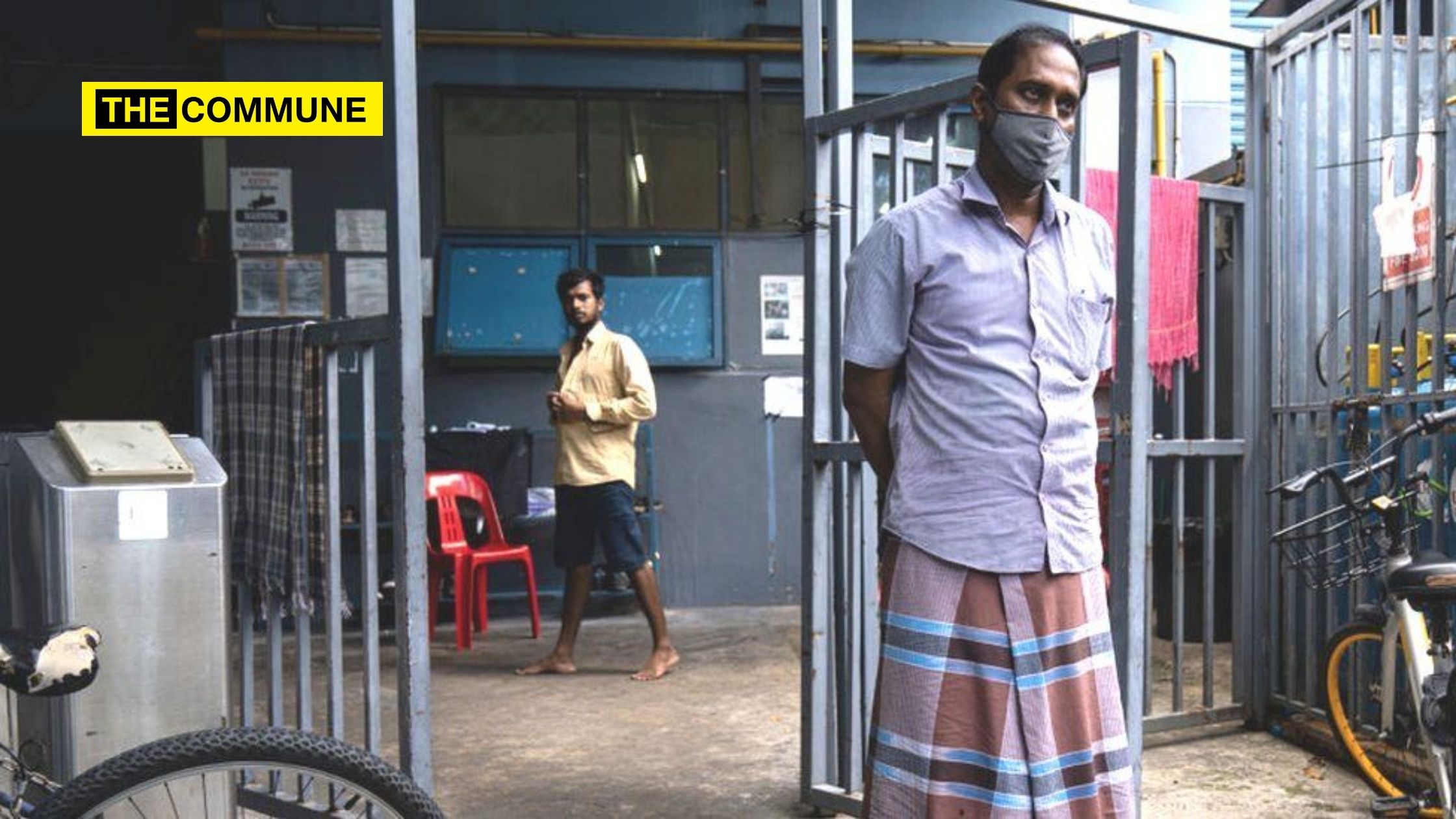
Feature Image Credits: BBC
Migrant workers belonging to India working in Singapore have been having a difficult time as they bear the brunt of the pandemic-induced lockdown with many living in cramped dormitories and unsanitary living conditions.
With Singapore witnessing a surge in COVID-19 cases, the spread of the disease is rapid in these dorms because of tightly packed bodies and subpar sanitation.
While the well-off expatriates are scrambling to book tickets to be with their families in the festive season, the migrant workers who are mostly from India with a majority of them from Tamil Nadu, are struggling to make ends meet with no money coming in due to lack of jobs. Many of them haven’t seen their families for several years and are hoping against hope to return to their homes back in their country.
Though a majority have been vaccinated, Singapore is restricting arrivals from countries like Bangladesh, India and Sri Lanka. So, those who return to India stand at the risk of losing their jobs or are made to undergo forced quarantine the cost of which the workers have to bear. The resultant financial burden and the fear of job loss are making the migrant workers to stay put in these dormitories.
According to a report by Bloomberg, as much as 15% of the migrant workers who are involved in repairing roads, building subway stations, manning shipyards, caring for the elderly and children are facing the heat.
Experts and rights activists are hence asking the Singapore government to make travel home more feasible for these workers when the island opens up.
Singapore’s migrants have been living in dorms, old factories, construction sites and other makeshift spaces or sometimes at the work site itself. Those staying in dorms are paid for by the employers. These dorms which are located far away from the glamorous glass buildings of the Singapore city, housed close to 30 people in a single shared room before the pandemic. This was later reduced to 12 in a room and a bathroom for 6 in line with COVID-19 guidelines.
There is also a clear discrimination in how these workers and native public servants are treated. The uniform public housing blocks called HDBs have a strict quota for foreign tenants. A primary reason for this is that the HDB residents’ do not like living near the workers, the Bloomberg News reported previously.
While the Singapore government has been taking some measures problems continue to exist for the migrants. Many allege that those who tested positive for Covid were denied proper treatment. Some of the photos posted online show people sleeping in corridors and outside to avoid giving the disease to others.
Many have also complained that the food that was being given was rotten or infested with insects and worms. When these workers raised their voice demanding these basic requirements, riot police in armored vehicles were sent in.
Those who are grabbing on to the jobs for their paychecks don’t have the luxury to confront their employers and contractors.
In light of this, activists and journalists reporting on the pitiable plight of these workers have been pressing the Singapore government to take action and expedite a dedicated travel line for the workers. They have called for affordable quarantine requirements and job/pay guarantees for existing pass holders upon return.
(With inputs from Bloomberg)
Click here to subscribe to The Commune on Telegram and get the best stories of the day delivered to you personally.




